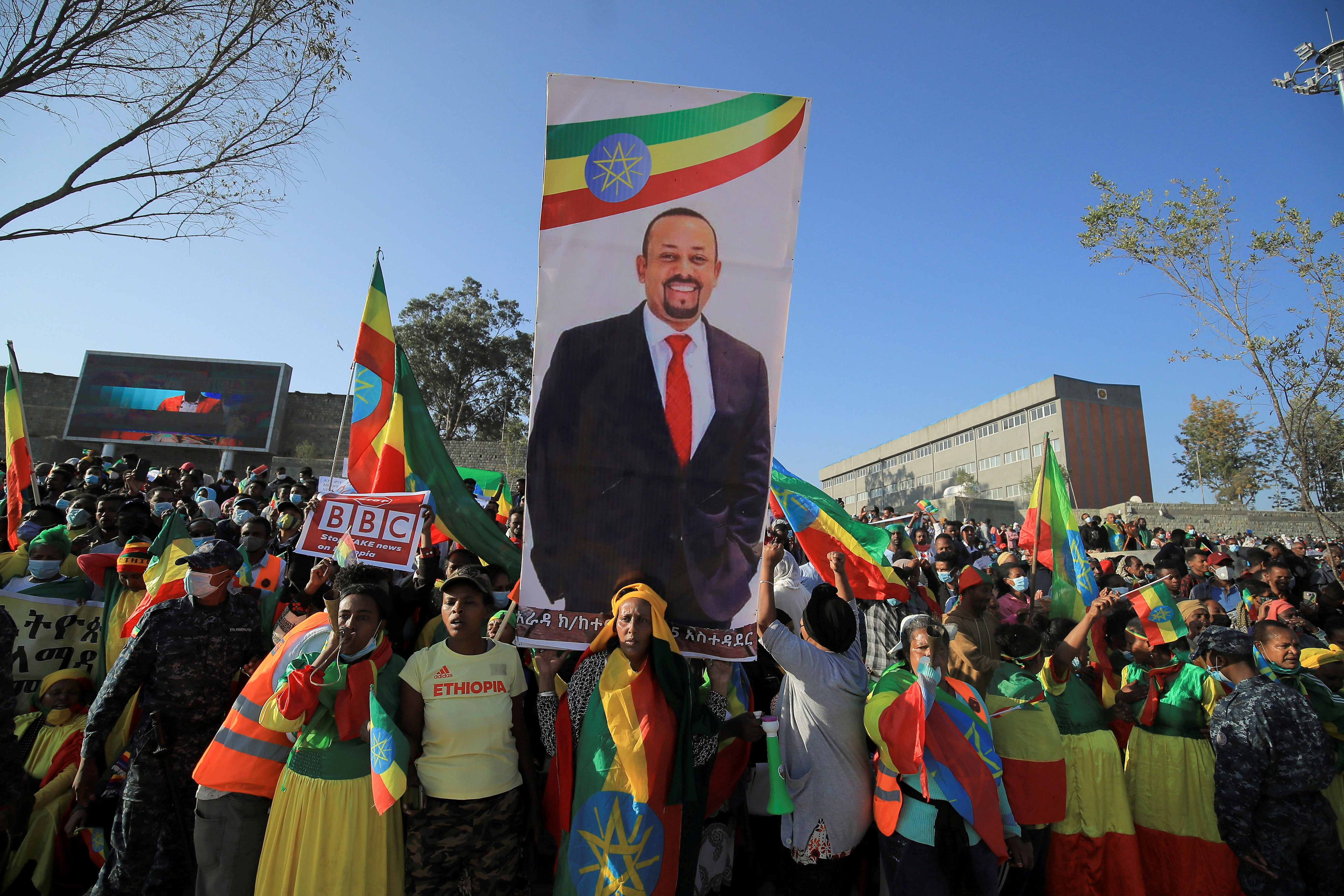Ethiopia expels Irish diplomats as foreigners urged to flee civil war
Citizens from countries such as Britain and France have been told to flee worsening conflict

Your support helps us to tell the story
From reproductive rights to climate change to Big Tech, The Independent is on the ground when the story is developing. Whether it's investigating the financials of Elon Musk's pro-Trump PAC or producing our latest documentary, 'The A Word', which shines a light on the American women fighting for reproductive rights, we know how important it is to parse out the facts from the messaging.
At such a critical moment in US history, we need reporters on the ground. Your donation allows us to keep sending journalists to speak to both sides of the story.
The Independent is trusted by Americans across the entire political spectrum. And unlike many other quality news outlets, we choose not to lock Americans out of our reporting and analysis with paywalls. We believe quality journalism should be available to everyone, paid for by those who can afford it.
Your support makes all the difference.Ethiopia has kicked out four Irish diplomats because of Dublin’s stance on the worsening civil war, while citizens from nations including Britain and France have been urged to leave as rebels advance towards Addis Ababa.
Ireland has been at the forefront of calling for meetings of the UN Security Council on Ethiopia and pushing for council statements on the conflict since it joined the 15-member body in January.
Irish Foreign Minister Simon Coveney said he "deeply regretted" the decision, and noted that Ethiopia has been the largest recipient of Ireland’s aid funds in the past five years.
"Ireland has been shining a spotlight on things that have been happening in Ethiopia that really are breaches of international law and are of serious humanitarian and human rights concern," Coveney told Ireland’s RTE radio.
"We’ve already had unfortunately a lot of death and a lot of killing in Ethiopia this year, but it could get an awful lot worse in the next few weeks... and that is why, unfortunately, the Ethiopian government has decided to target Ireland.”
The Ethiopian Ministry of Foreign Affairs did not immediately respond to a request for comment.
Also on Wednesday, Switzerland and Britain advised their citizens to leave Ethiopia, citing the deteriorating security situation. France and the United States have already called on their nationals to leave in recent weeks.
The diplomatic spat came after state-affiliated media reported that Ethiopia‘s Prime Minister Abiy Ahmed has gone to direct the war from the front lines against the Tigray Peoples Liberation Front (TPLF).
Mr Abiy announced late on Monday he was planning to personally direct the fight against Tigrayan forces and their allies. The Ethiopian PM, who is a former soldier, won the Nobel Prize in 2019 for leading negotiations that ended with a peace agreement with neighbouring Eritrea – a deal that sidelined the TPLF.
"Let’s meet at the war front," Mr Abiy wrote on Twitter on Monday. "The time has come to lead the country with sacrifice."
Two Olympian athletes - Haile Gebreselassie and Feyisa Lelisa - have announced that they are enlisting in the military, according to local media.
Tens of thousands of people have been killed in the year-long war between Ethiopian and allied forces and fighters from the country’s northern Tigray region, who long dominated the national government before Mr Abiy took office.
TPLF forces are moving closer to the capital, and the United States and others have warned that Africa’s second-most populous country could fracture and destabilize the Horn of Africa.
US Special Envoy Jeffrey Feltman, along with former Nigerian president turned African Union envoy Olusegun Obasanjo, has been trying to broker a ceasefire between the two sides. However, Mr Feltman said on Tuesday that nascent progress risked being overshadowed by military developments.
Additional reporting by Reuters and AP
Join our commenting forum
Join thought-provoking conversations, follow other Independent readers and see their replies
Comments